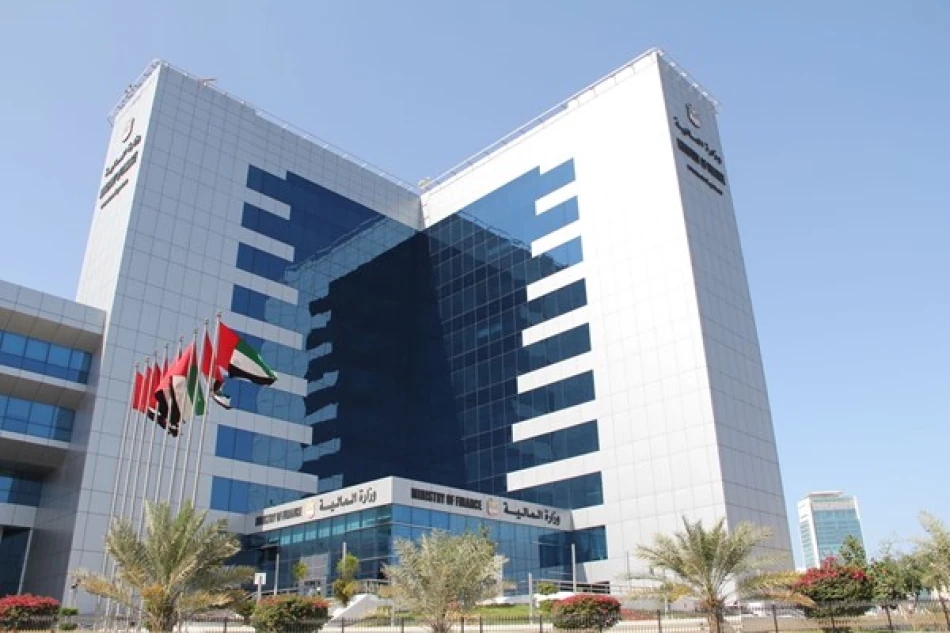
ADNOC Welcomes UAE Finance Ministry's Measures to Boost Energy and Commodity Trade
UAE Strengthens Energy Trading Hub Ambitions with New Free Zone Regulations
The UAE Ministry of Finance has issued two pivotal ministerial decisions that could significantly accelerate the country's transformation into a global energy and commodities trading powerhouse. The new regulations, welcomed by state oil giant ADNOC, provide clearer operational frameworks for companies trading energy and commodities in free zones, potentially positioning the Emirates as a serious challenger to established hubs like Singapore and London.
Regulatory Clarity Drives Market Confidence
Ministerial decisions 229 and 230 of 2025 represent more than routine administrative updates—they signal the UAE's strategic intent to capture a larger share of the estimated $15 trillion global commodities trading market. The regulations clarify qualifying activities including commodity trading, treasury services, and intra-group financing, addressing long-standing operational uncertainties that have previously hindered some international traders.
Khaled Al Zaabi, ADNOC's Chief Financial Officer, emphasized that these decisions provide "regulatory stability" that supports the group's commercial and financial operations growth. For a company that has rapidly expanded its trading operations since 2020, such regulatory certainty translates directly into operational efficiency and investment attractiveness.
Expanding Beyond Traditional Energy Markets
The expanded scope of eligible commodities—now including industrial chemicals and environmental products—aligns with global market trends toward diversified trading portfolios. This mirrors Singapore's successful strategy of evolving from a petroleum hub to a comprehensive commodities center handling everything from metals to agricultural products.
Ahmed bin Thalith, CEO of ADNOC Global Trading, described the measures as creating a "more flexible and investor-attractive trading environment." This flexibility becomes crucial as energy markets increasingly integrate renewable technologies and carbon trading mechanisms.
Digital Trading Platforms Gain Recognition
The regulations explicitly support growth across both physical and digital trading platforms, acknowledging the industry's technological transformation. As blockchain-based commodity trading and digital documentation become standard practice, the UAE's early regulatory accommodation could attract fintech-oriented trading firms seeking clearer operational frameworks.
Strategic Positioning Against Global Competitors
The UAE's move comes as traditional trading hubs face various challenges. London grapples with post-Brexit complications, while Singapore manages increasing operational costs and space constraints. The Emirates' combination of strategic location, political stability, and now enhanced regulatory clarity creates a compelling value proposition for international traders.
ADNOC's rapid expansion since launching its trading operations in 2020 demonstrates the potential scale of opportunity. With offices now spanning Abu Dhabi, Singapore, and Geneva, the company exemplifies how UAE-based entities can leverage improved regulations to build global market presence.
Treasury Services and Internal Financing
The formal recognition of treasury services for related parties addresses a critical operational need for multinational trading companies. This regulatory clarity enables more efficient internal financing and cross-border collaboration—essential capabilities for companies managing complex global supply chains and hedging strategies.
Market Implications and Investment Outlook
For international investors and trading houses, these regulatory updates reduce compliance uncertainty and operational risk. The recognition of authorized entities for price reporting enhances transparency and consistency across valuation, pricing, and financial reporting mechanisms—factors that institutional investors increasingly prioritize when selecting operational bases.
The timing proves strategic as global energy markets undergo fundamental restructuring. With traditional oil and gas trading evolving to include hydrogen, ammonia, and carbon credits, jurisdictions offering regulatory flexibility and operational efficiency gain competitive advantages.
These developments position the UAE not merely as a regional trading hub, but as a global competitor capable of attracting the sophisticated financial and technological infrastructure that modern commodity trading demands. The success of this strategy will likely depend on execution quality and the UAE's ability to maintain its regulatory edge as other jurisdictions respond with their own competitive measures.
Most Viewed News

 Layla Al Mansoori
Layla Al Mansoori






